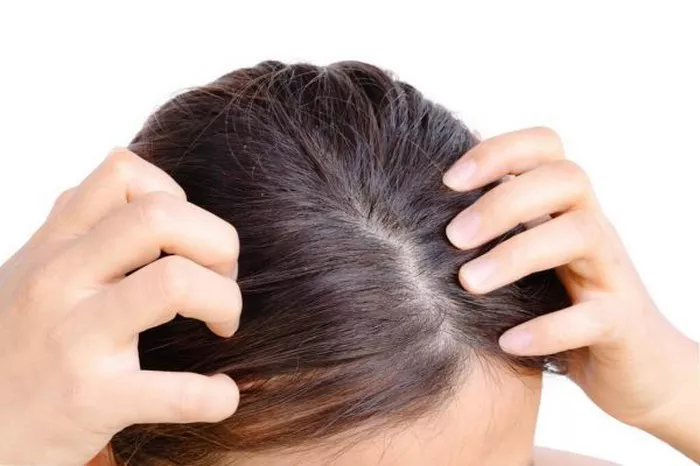Hair loss is a common concern affecting millions of individuals worldwide, transcending age, gender, and ethnicity. While it’s often associated with aging, hair thinning can strike at any stage of life, leaving many searching for effective solutions. Understanding the root causes of hair loss is crucial in selecting the most suitable treatment. Stress, hormonal imbalances, genetics, and the use of harsh hair products are among the leading culprits behind this condition.
Stress, whether physical or emotional, can disrupt the hair growth cycle, leading to excessive shedding. Hormonal fluctuations, such as those experienced during pregnancy or menopause, can also trigger hair loss. Genetics play a significant role, with hereditary conditions like male or female pattern baldness dictating hair density and distribution. Furthermore, exposure to harsh chemicals present in certain hair products can damage follicles, impeding regrowth.
FDA-Approved Ingredient: Minoxidil:
Among the plethora of hair regrowth treatments available, minoxidil stands out as the only FDA-approved ingredient clinically proven to combat hair loss effectively. Originally developed as an oral medication to treat hypertension, minoxidil was serendipitously discovered to stimulate hair growth when applied topically. Its mechanism of action involves widening blood vessels, thereby improving blood flow to the scalp and revitalizing dormant hair follicles.
Topical Treatments:
In the realm of topical treatments, minoxidil-based formulations reign supreme. Available in various forms such as foams, serums, and shampoos, these products offer convenience and versatility in application. Consistency is key when using topical treatments, as it may take several weeks to months before noticeable results emerge. Selecting the right product tailored to individual needs is essential for optimizing outcomes.
Other Effective Ingredients:
While minoxidil takes center stage in many hair regrowth formulations, complementary ingredients can further enhance efficacy. Scalp exfoliants like saw palmetto and tea tree oil offer soothing properties, alleviating scalp inflammation and creating an optimal environment for hair growth. Saw palmetto, in particular, is known for its ability to inhibit the production of dihydrotestosterone (DHT), a hormone implicated in hair loss.
Product Recommendations:
In the vast landscape of hair regrowth products, navigating the options can be daunting. Here are some recommended products known for their effectiveness:
1. Women’s Rogaine 5% Minoxidil Foam: A trusted choice among women seeking to combat hair loss.
2. Keranique Hair Regrowth Treatment: An affordable yet potent option for those on a budget.
3. Vegamour Gro Hair Serum: A concentrated serum formulated to promote robust hair growth.
4. Nioxin Hair Regrowth Treatment: Tailored specifically for women, offering targeted solutions.
5. Nutrafol Women Hair Growth Supplement: Harnesses the power of supplements to address hair loss from within.
6. Viviscal Hair Growth Supplements for Women: Another supplement option enriched with key nutrients.
7. Advanced Trichology DHT Blocking Treatment Shampoo: Effectively targets DHT, promoting hair regrowth.
8. Pura D’Or Anti-Thinning Biotin Shampoo: Infused with biotin to strengthen and revitalize hair.
9. BosleyMD BosRevive Volumizing Conditioner: Nourishes and volumizes hair for a fuller appearance.
Consultation with Experts:
While over-the-counter remedies offer promise, consulting with a trichologist or dermatologist can provide invaluable insights tailored to individual needs. These specialists can conduct comprehensive evaluations to determine the underlying cause of hair loss and recommend personalized treatment plans. It’s important to note that individual results may vary depending on factors such as the severity of hair loss and underlying health conditions.
In conclusion, effective hair regrowth entails a multifaceted approach encompassing FDA-approved ingredients, targeted treatments, and expert guidance. By understanding the intricacies of hair loss and selecting appropriate interventions, individuals can embark on a journey towards restoring hair vitality and confidence.
FAQs
Is there any hair regrowth treatment that actually works?
Yes, there are several hair regrowth treatments available that have shown effectiveness in promoting hair growth. These treatments include medications like minoxidil and finasteride, as well as procedures like hair transplant surgery. However, the effectiveness of these treatments can vary from person to person, and results may not be guaranteed for everyone.
What is the most successful hair regrowth product?
The most successful hair regrowth product can vary depending on individual factors such as the cause of hair loss, genetic predisposition, and personal response to treatment. However, minoxidil (commonly known as Rogaine) and finasteride (sold under the brand name Propecia) are among the most widely used and clinically proven treatments for hair loss. These products have been shown to effectively promote hair regrowth in many individuals.
Which is more effective for hair regrowth?
The effectiveness of hair regrowth treatments can depend on various factors, including the cause and extent of hair loss, individual response to treatment, and consistency in use. Both minoxidil and finasteride have been shown to be effective for many people, but they work in different ways. Minoxidil is a topical solution that promotes hair growth by increasing blood flow to the scalp, while finasteride is an oral medication that works by blocking the hormone dihydrotestosterone (DHT), which is associated with hair loss.
Is it possible to regrow lost hair?
Yes, it is possible to regrow lost hair, particularly with the use of various hair regrowth treatments. However, the success of regrowing lost hair can vary depending on factors such as the underlying cause of hair loss, the stage of hair loss, and individual response to treatment. While some people may experience significant regrowth with treatment, others may see more modest results or may not respond to treatment at all. It’s important to consult with a healthcare professional to determine the most appropriate treatment approach based on individual circumstances.


